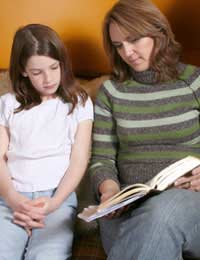History: Germany

The study of history gives us a sense of our own identity and enables us to understand a country's traditions, conflicts, culture, values and principles. Children in particular often get a great sense of enjoyment from piecing together the story of the past. It is through the teaching of history that children learn about the world they are now living in, and it is important that they consider the issues that have helped to shape the development of society as we know it today.
The history that we are usually the most familiar with is political history - war and peace, important leaders and government changes. History also includes ideas and cultural activities such as architecture, art and music.
Where to Start
When studying the history of a particular country it is often helpful to begin with a topic that the children are already familiar with. For instance, in the study of the history of Germany, the history curriculum usually uses World War 2 as its starting point. The story of Anne Frank is very popular with most children as they can identify well with the story of a child who is of a similar age. Putting Anne Frank in a historical context can teach the story of World War 2, German history, and stretches to other European countries that were also affected by the war.The following are some of the aspects of German history that you may want to research with your child:
- What was life like for children growing up during World War 2 – food, school, evacuations, houses and homes?
- The evacuations of women and children.
- Fashion from the 1930s.
- The effect of the war on Britain – rationing, the Battle of Britain, the Blackout, The Blitz, gas masks, air raid shelters.
- Campaigns and posters used during the war.
- War songs
- How has life changed since the war, both in Germany and Britain?
- The holocaust can be researched but for younger children needs to be treated in a sensitive manner.
- Looking at evidence – copies of documents, photographs etc. can be found on the Internet or in books. Your child may have older relatives that may have memories of how World War 2 impacted their lives, and possibly still have historical items such as gas masks or ration books.
- A timeline – this is very important in any historical topic so that the child can easily incorporate other topics onto one line. Timelines take the confusion out of history, as history and the concept of time are abstract ideas.
Encyclopaedias, CD-ROMS, the Internet and information books can all provide excellent information on the history of a country. The history of Germany is particularly well documented because of the war and its worldwide impact.
- Top Tips for Studying Novels
- Choosing GCSE Subjects
- English Literature: How to Write a Poetry Essay
- English Literature: Creative Writing Hints and Tips
- Creating Outlines for Essays and Projects
- Helping Your Child Prepare For Working Life
- Reference Options
- RE: Ethical Issues
- Maths: Rational and Irrational Numbers
- Revision Skills
- Science: Radioactivity
- Citizenship: Learning About Human Rights
- English Literature: Poetry
- Geography: Ecosystems
- Coursework
- Post Compulsory Education Choices
- English Language: Writing To Persuade
- GCSE Preparation and Revision
- Beating Exam Stress


Re: English Literature: How to Write a Poetry Essay
New Member Introduction – Happy to Join the Community
Re: Speaking and Listening: Storytelling
nice
Re: Starting a Homework Club
Hi I resently start with a homework club do I need to be rgister at socail workers and go to all that proces please need some at advice
Re: Starting a Homework Club
I'm trying to start a homework club business in my community. I wish I could get a mentor who would assist me step by step to achieve…
Re: Starting a Homework Club
Hello, I’ve recently opened my own private after school homework club but I could do with a lot of guidance (Perhaps a mentor) to help…
Re: Starting a Homework Club
Thank you for your info I set up one in my church as I see many struggling maths and science students From just a few we have grown…
Re: How Much Homework Should Your Child Be Getting?
My daughter has just started year 7. She can get 2-4 pieces of home work per day each from 30-45 mins…
Re: How Much Homework Should Your Child Be Getting?
My 8 year old (year 3) daughter gets almost no homework. We are ,and always have, pushed her to succeed,…
Re: How Much Homework Should Your Child Be Getting?
My daughter moved to secondary school in Wales in January 2019. Since then she has had one or two pieces…
Re: Keeping a Homework Diary
I love school I have been told I could go on this app to do homework ??!!